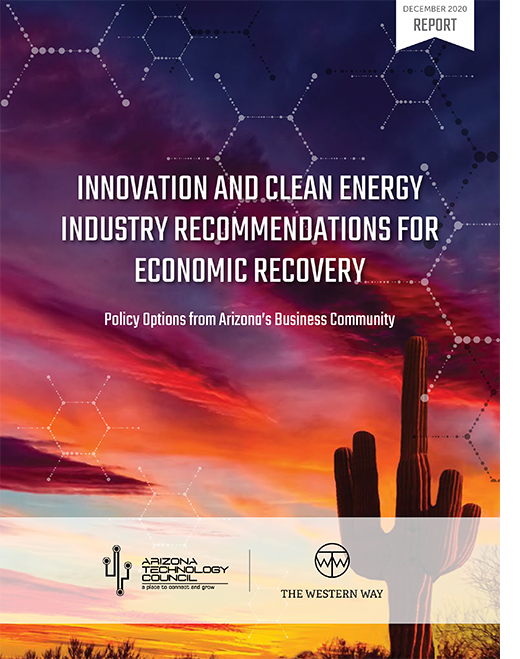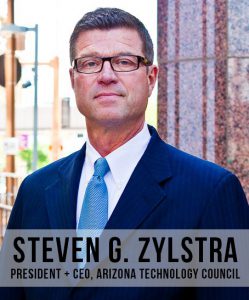INTERVIEW: AZTC + The Western Way say corporate partnerships will help stimulate renewables
 Following a joint report from their two entities, Doran Miller, Arizona director of the Western Way and Steve Zylstra, president and CEO of the Arizona Technology Council, think 2021 has the potential to be an important year for renewables in the state.
Following a joint report from their two entities, Doran Miller, Arizona director of the Western Way and Steve Zylstra, president and CEO of the Arizona Technology Council, think 2021 has the potential to be an important year for renewables in the state.
Miller and Zylstra were part of the team that put together the Innovation and Clean Energy Industry Recommendations for Economic Recovery last month calling for additional government action to grow renewables, specifically green hydrogen infrastructure and a specific energy council, to help stimulate the post-COVID-19 economy. The pair hope that the report can offer concrete methods to legislative officials following a rapid support for clean energy in the state, including new energy rules that call for decarbonization by 2050.
But there’s another player with significant influence on the state’s clean energy growth: the myriad of corporations that have made Arizona their home. Zylstra said the Arizona Technology Council, which represents about 800 member companies statewide, has focused on renewables for the last three to four years.
 “Data centers are the largest single-consumer of electric power, period, and manufacturing is number two,” Zylstra said. “They have all been setting their own goals to get to zero carbon and in many cases they’re not that far off in the future, 2023, 2025, 2030. And increasingly, tech companies are demanding of utilities that all of their power come from clean sources.”
“Data centers are the largest single-consumer of electric power, period, and manufacturing is number two,” Zylstra said. “They have all been setting their own goals to get to zero carbon and in many cases they’re not that far off in the future, 2023, 2025, 2030. And increasingly, tech companies are demanding of utilities that all of their power come from clean sources.”
“There’s lots of innovation going on here, which we want to encourage in areas like storage…Intel is here, they’ve got a big stake in this industry and they’re all also looking at their own operations to find ways that they can become carbon-free in the not-too-distant future,” Zylstra said.
In 2020, the state’s largest utility Arizona Public Service announced a goal of 100% clean energy by 2050. Tucson Electric Power also announced plans to be 70% wind and solar and reduce emissions 80% by 2035. Miller thinks these ambitious goals can be partially attributed to the business and technology sectors.
“I think a lot of that can be credited, not 100%, but a lot can be accredited to the pressure private corporations have put on utilities,” Miller told New Project Media.
 Zylstra noted that most of the corporations with clean energy goals are also looking at green hydrogen and electric charging infrastructure for employees’ electric vehicles. Arizona is already home to Nikola Corporation, a company in the midst of developing hydrogen and electric vehicles, including semi-trucks.
Zylstra noted that most of the corporations with clean energy goals are also looking at green hydrogen and electric charging infrastructure for employees’ electric vehicles. Arizona is already home to Nikola Corporation, a company in the midst of developing hydrogen and electric vehicles, including semi-trucks.
In addition to green hydrogen, the report suggests encouraging renewable energy technology development through relaxed height and setback requirements, tax exemptions for the storage industry as well as tax credits and an investment fund for renewable hydrogen.
“There’s a role for the federal government, there’s a role for the state government, there’s a role for local governments, and there’s a role for companies, corporations,” Zylstra said. “That’s why we believe public/private partnerships are the way to go to get the infrastructure in place that’s necessary.”
View the article in its entirety on New Project Media’s website.
